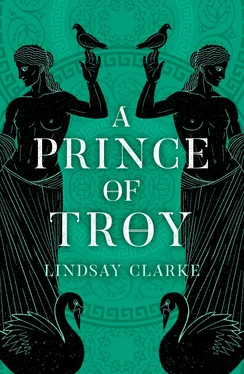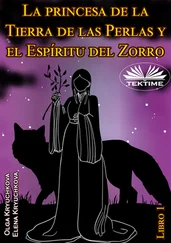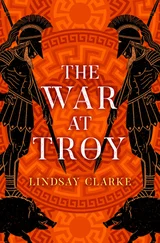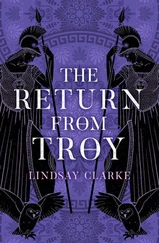‘I shan’t – because it will be your blood that makes him so. When he is of age I will send him to you.’
Cheiron nodded his old head. ‘Then I shall live for that.’
Yet Thetis fell pregnant six times in the following years and each time she came to term, but not one of the infants lived for more than a week or two.
At each small death, Peleus found the sadness harder to bear, and all the more so because it was his wife’s custom to withdraw to a sanctuary of the shore people between the start of her labour and the day when she hoped to present a living child to the world. When Peleus asked the reason for this practice, she told him it was a woman’s mystery and not to be questioned.
Yet she returned each time, pallid and drawn, as if hollowed out by failure.
But she would say nothing more, so Peleus harboured his grief and returned to giving judgement in the world of men, and they lived a life that became ever more fraught with the silence that was left between them.
After the loss of the third child, he argued more strongly that it would be wise for them to consult her father who was more renowned for his medical knowledge than almost any man alive. But Thetis would not hear of it. She was a woman, she said, not a sick mare, and she wanted no truck with his mountain magic. Her trust was in her own understanding of these things as a seapriestess to the moon-mother. In any case, had it not been prophesied that her son would be a stronger man than his father? Any child of hers that was not strong enough to survive the trials of birth had no place on the earth. He should not mourn them so.
Her ferocity astounded him, but he put it down in part to an effort to mask her own sorrow, and in part to the influence of the Dolopian priestess who was his wife’s constant companion. A small, intense woman with deep-set eyes and a strawberry-birth mark shaped like a sea-horse on her neck, her name was Harpale. Thetis honoured her as a kinswoman, one of her mother’s people, and she had begged Harpale to stay with her at the court of Peleus rather than joining her clan’s recent migration to the island of Skyros.
The Dolopians were a restless people who had travelled from the far west a generation or two ago and settled about the shores of Thessaly. Now, under their king Lycomedes, some of them had felt the urge to move out to the Scattered Islands in the eastern sea and they had established a stronghold of their own on the windy island of Skyros. The move happened not long after Peleus had established his kingship over the Myrmidons, and feeling the strong call of island life, Thetis had wanted to go with them.
For a time it had been a struggle between them. Born on an island himself, Peleus knew the nature of the call, but he was king over a mainland people now and it was his wife’s duty to remain with him and provide him with an heir. Was it not enough that he had already shifted the court to the coast for her sake? He had understood her need for the sea. He was content for her to hold to cult practices which he did not share, and which – though he did not say it – he did not greatly trust. But she must respect the constraints imposed by royal duty on their life. They would remain where they were in Thessaly.
Meanwhile Peleus had been kept busy enough. Once he was secure on his throne he had harnessed the power of the Myrmidons to settle his score with Acastus. A swift, brutal campaign took them through Magnesia into Iolcus. Acastus was killed in the fight and his mad wife was quickly put to death. Giving thanks to Zeus and Artemis, who had a powerful cult centre in Iolcus, Peleus was declared king there and made Iolcus his new coastal capital.
Having learned the laws and customs of the Myrmidons, he set now about harmonizing them with those of Magnesia, trying to run a peaceable kingdom, and giving judgement in the quarrels with which his warlike men filled the boredom of their peaceful days. Also there was always a pressing need to raise money. To feed and clothe the royal households, to pay his retainers, arm his warriors, carry out his building projects, repair his ships, and make expensive offerings to the gods, all of this took a lot of gold. What could not be raised as tribute must be found elsewhere, so in company with the ageing Theseus, he turned pirate in the summer months and took to raiding the merchant ships and rich estates of the eastern seaboard.
He made his reputation as a valiant warrior and a generous king on those voyages, though his exploits never ranged as widely as those of his brother. Telamon had already sailed on Jason’s Argo in the quest for the Golden Fleece, and had become a close comrade to Heracles, who was renowned and feared from Epirus to Paphlagonia as the boldest, most vigorous and, at times, the maddest hero of the age. Having already made a further expedition round the coast of the Black Sea into the land of the Amazons, Telamon and Heracles were now mounting a campaign against the Phrygian city of Troy.
Telamon tried to talk his brother into joining forces with them, but Peleus lacked his restless appetite for battle and was reluctant to risk his kingdom’s hard won wealth in what promised to be an unprofitable attack on a bankrupt city recently visited by plague and earthquake. But neither did he wish to look weak in Telamon’s eyes. In the end the decision was made for him by a wound he took in a ship-fight that spring. A Sidonian sword cut his right hamstring as he leapt aboard the galley, putting him out of action for months.
That was also the year in which his sixth child died in early infancy, and the grief of it was more than he could bear. A marriage that had begun so inauspiciously was now eroded by mutual disappointment, and its passion had faded as its tensions increased. Peleus was often given cause to puzzle over what Cheiron had said about Thetis entertaining immortal longings, but it seemed to account for her restlessness and the way her spirit sometimes chafed against his own more practical concerns. These days she seemed to take comfort only in Harpale’s company, and Peleus grew to resent the power that the little Dolopian exercised over his wife’s imagination. Harpale soon learned to stay out of his way, though her name frequently cropped up in conversation with his wife, reproaching him like the sting of a seaurchin for the island life she was denied.
Of Thetis’s failure to provide him with an heir it became ever harder to speak, so when he finally decided to consult Cheiron about his injured leg, Peleus went against his wife’s wishes and raised this other, graver matter with him too.
Cheiron listened carefully as he applied thick poultices to his son-in-law’s leg. He asked questions about the practices of the cuttlefish cult, and took a particular interest in the part that Harpale had come to play in his daughter’s life. Knowing something of the Dolopians, he asked Peleus whether there had been any unusual signs of the use of fire in his daughter’s rites. Peleus was unable to answer, however, because he was now excluded from all that part of his wife’s life. His own service was to Zeus, to Apollo, and to the goddess, whether worshipped as Athena in Itonus or as Artemis in Iolcus; but as to his wife’s most secret mysteries, he was as ignorant as his horse.
Cheiron nodded. ‘Remain here till these herbs have shared their virtue. Had you come sooner I could have done more, but now you will always walk with a limp. Still,’ he smiled up into his friend’s face, ‘if you had been your horse I would have had to cut your windpipe!’ He fastened the bandage and sat back to wash his hands. ‘As to the other matter, I will reflect on it.’
When Peleus travelled back down the mountain he brought with him a Centaur woman called Euhippe, who wept such fat tears when they left the gorge that Peleus guessed that the old king’s pallet of grass would be a lonelier place after the parting. She was a small, round woman with a shyly attentive manner, and large, surprisingly delicate hands. Overtly she was to be taken into the household as a nurse for the care of Peleus’s wound, but he soon intended to make it known that Euhippe was a skilful midwife too.
Читать дальше












